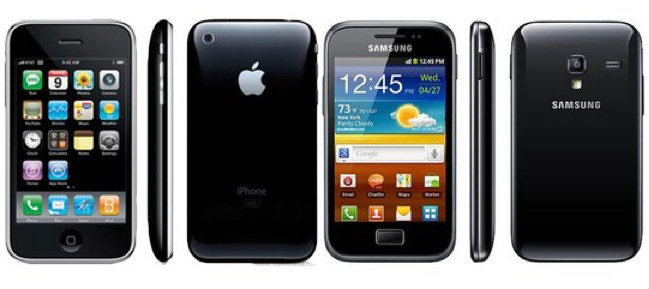After being denied an en banc rehearing with the U.S. Court of Appeals for the Federal Circuit over a prior decision that kept intact Apple's multi-million dollar patent trial win, Samsung has voiced intent to argue the case in front of the Supreme Court.
Samsung said in a court filing on Wednesday that it plans to petition the Supreme Court to hear an appeal over damages awarded to Apple in the first Apple v. Samsung jury trial. The decision comes one week after the company saw its request for a full-panel CAFC rehearing shot down.
Ended in 2012, the first California action left Samsung initially facing $1.05 billion in damages payments for infringing on Apple's intellectual property, though a subsequent partial retrial and successful CAFC appeal reduced that amount to $548 million.
The latest appeal has Samsung arguing against some $399 million worth of damages. In its failed attempt at a CAFC rehearing, the Korean company argued that complex electronic devices, such as smartphones or tablets, contain "hundreds or thousands of different patented technologies," of which Apple's asserted patents only cover minor features.
The Supreme Court is Samsung's last chance at relief, though acceptance of its petition is not guaranteed. Indeed, as noted by MacWorld, the odds are stacked against a Supreme Court showing considering the court only accepts about 75 petitions out of some 10,000 per year.
A motion to take a technology patent gripe to the highest court in the land — if it is indeed heard — involves by its nature important ramifications to future patent reform and the tech sector in general. As noted by Samsung in its petition:
First, the petition will present the question whether a district court must ensure, through proper claim construction and jury instructions, that a finding of design-patent infringement does not rest on unprotected functional elements of the design. Second, the petition will present the question whether an award of an infringer's entire profits exceeds the scope of Section 289 where a patented design is only a minor feature of an infringing product.
Design patent claim and construction is also being questioned, in this case as it applies to Apple's asserted iPhone and iPad properties. As it stands, America's labyrinthine patent system is playing no small part in complicating ongoing Apple v. Samsung proceedings, and has thus drawn an equal amount of scrutiny. Just this week, the U.S. Patent and Trademark Office issued a non-final determination invalidating design IP covering the original iPhone on multiple counts of prior art, at least two of which involved Apple's own patents.
Despite wrapping up three years ago, the first Apple v. Samsung action, and two subsequent California trials, are still slogging through the U.S. court system on multiple appeals lodged by both parties.
 Mikey Campbell
Mikey Campbell







-m.jpg)






 Christine McKee
Christine McKee
 Charles Martin
Charles Martin
 Mike Wuerthele
Mike Wuerthele
 Marko Zivkovic
Marko Zivkovic
 Malcolm Owen
Malcolm Owen


 William Gallagher
William Gallagher

-m.jpg)






49 Comments
Samsung give it a rest please ????????
While at Phoenix Technology we were appalled that even after signing a bios license contract, Samsung would continue to try to renegotiate the deal. They have no honor in my eyes.
Bring it on, Sammy.
Oh surprise surprise.
These guys don't just know when to quit. Every time I hear about this case I'm reminded that Samsung plagiarized an American company. Only a narcissist would take the case this far. The damage to their brand caused by these constant reminders more than outweighs the fine they could have paid four(?) years ago.